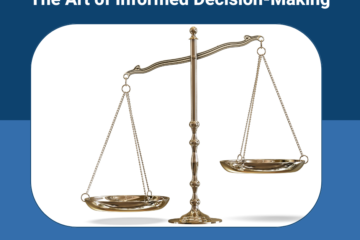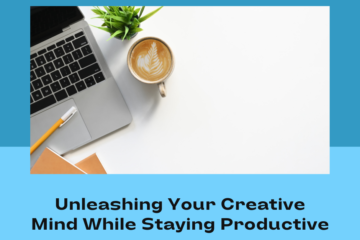
Introduction
In the world we live in now, social pressures, family standards, and even the unintentional effects of social media are always with us. These things can lead us down a road that might seem like the one we’re “supposed to” take, but is it really in line with who we are? When our deeds don’t match up with what we really want, we often feel unfulfilled and restless. Living someone else’s life isn’t just bad for us; it’s also a missed chance to share our unique skills and points of view with the world. In this blog post, we’ll talk in depth about authenticity and self-discovery. We’ll look at why it’s important to stop living someone else’s story and what steps you can take to live a life that is truly yours.
The Signs: How to Know You’re Living Someone Else’s Life
The “Should” Trap
One of the clearest signs that you’re living someone else’s life is when your daily actions are based on “shoulds.” If you often think, “I should go to this event” or “I should pursue this career because it’s what’s expected of me,” then you’re not in charge of your own life. Most of the time, these “shoulds” don’t match up with your true hobbies or interests. They are goals and wants that someone else gave them, like family, friends, or social rules.
Emotional Drain
When you don’t live in an honest way, each day feels like a struggle. Putting on a mask and putting out a picture that is very different from who you really are is hard on your emotions. If you’re always playing a role that doesn’t match your inner reality, you might feel tired, stressed, or even anxious all the time. On the other hand, being real gives you energy just by being itself. When you’re true to yourself, your actions and choices come naturally. This makes you less stressed and emotionally tired.
Second-Guessing Your Choices
Another sign that you’re living someone else’s life is that you don’t feel strongly about the choices you make. When you make a choice based on what you think will make people happy or keep you from getting in trouble, you often have doubts about that choice. This second-guessing comes from the fact that, whether you’re aware of it or not, you’re not taking care of your own needs and wants. When you live an authentic life, every choice you make fits with who you really are. This means you don’t have to constantly doubt yourself or overthink things.
Seeing these signs is the first step to getting back to your real self. The next steps are to think deeply about yourself, make the changes you need to make, and start a journey of self-discovery, which we will talk more about later.
The Consequences: What’s At Stake?
Lost Time
When you live someone else’s life, you lose time, which is one of the most valuable things you can’t get back. Every second you spend meeting someone else’s expectations is a second you can’t use to make your own important experiences. Over time, these missed chances to grow as a person add up and can lead to regrets later in life. Since you can’t go back in time and start over, the loss is big. Even though it’s never too late to change direction and start living authentically, realizing and acting on it sooner can save you years, if not decades, of living in a way that doesn’t feel like you.
Missed Opportunities
Living someone else’s life costs you more than just time; it also costs you the unique chances that would help shape your own path. For example, you might pass up a chance to travel and learn more because it doesn’t fit with the safe, predictable life your parents want for you. Or, you might miss out on a romantic relationship that could have been very rewarding but wasn’t “suitable” according to your friends. These missed chances can stop you from growing as a person and keep you from having experiences that could make you happier and more fulfilled in general.
Emotional Toll
If you live a fake life, it can have serious effects on your mind and heart. Over time, the stress of always pretending and trying to meet other people’s standards can lead to anxiety and depression, among other things. Also, when you’re not in touch with your real self, you’re more likely to feel disconnected and unfulfilled, no matter how successful you may seem to others. This emotional dissonance often leads to a constant feeling of dissatisfaction, which can hurt not only your mental health but also your physical health, relationships, and general quality of life.
It’s important to understand these effects because they show what’s at stake if you keep going down a road that’s not really yours. It’s a wake-up call to look at your life, think about the choices you’ve made, and take steps toward a more real life.
The Turnaround: Reclaiming Your Authentic Life

Self-Awareness
Getting a deep understanding of yourself is the first step to recovering your real life. Start by asking yourself some tough questions like, “What are your true wants and needs?” What makes you happy and full of life? What are your interests, the things that really get you going? This isn’t easy to do and often takes a lot of time and thought. You could also write down your thoughts or talk to a trusted friend or psychologist about them. Understanding who you are at your core will help you make decisions that are in line with who you really are. If you don’t, you’re like a ship without a compass, open to every impact from the outside.
Set Boundaries
Setting limits is one of the most powerful things you can do on your way to being yourself. We often end up living someone else’s life because we haven’t set clear limits for ourselves. Learning to say “no” is a way to take care of yourself because it lets you save your time, energy, and mental resources for the things that really matter to you. Setting limits is not a selfish thing to do; it’s a way to protect yourself. People who are used to you not having boundaries may push back at first, but with time and consistency, they will come to accept your new commitment to yourself.
Take Baby Steps
Once you know yourself and have set some limits, the next step is to start acting like your true self. But it’s important to keep in mind that change is often a slow, step-by-step process. Trying to do too much too soon can be stressful and not help you reach your goals. Start with small, doable steps that are true to who you are. This could mean spending a few minutes a day on a skill you love, reaching out to make a new friend who shares your interests, or taking a short course in a field you’ve always been interested in. These “baby steps” create a domino effect that leads to bigger changes and, in the end, a life that shows who you really are.
In short, getting back to your true self is neither a one-time thing nor a quick fix. It’s a long journey of getting to know yourself, setting limits, and slowly changing. If you put effort into this process, you’ll find that the life you make is the life you were always meant to live.
Self-Discovery: The Ongoing Journey of Authenticity
As you start to make these changes, you’ll realize that self-awareness and self-discovery are not one-time events but constant processes. Because you’re always changing, the journey to knowing yourself is never really over. This is where the fun of getting to know yourself comes in. Don’t turn down chances to try new things, fail, learn, and grow. To stay in touch with your inner self, you might want to try mindfulness, meditation, or regular periods of thought.
Self-discovery is great because it often leads you to doors you didn’t even know were there. As you peel back the layers of societal expectations, peer pressure, and self-imposed limits, you’ll find hobbies, talents, and passions you may not have known you had. This is where the real magic of living your true life happens. Every new thing you learn about yourself is another piece of the puzzle that helps you figure out who you are and steer your life in a way that brings you satisfaction, joy, and a deep sense of being yourself.
So, keep in mind that self-discovery isn’t just a stage; it’s a journey you take your whole life. Your tastes will change, your goals will change, and you’ll get new chances to grow. And that’s not only fine, it’s great because it means you’re living an interesting, real life.
In the end, the path to reclaiming your true self doesn’t lead anywhere. It’s a process of discovery and change that never ends. The more time and effort you put into getting to know yourself, the richer and more real your life will become, always fitting who you are as you change and grow.
Conclusion: The Beauty of Authenticity
Living an honest life is not only a sign of self-respect; it’s also a brave thing to do. You are going against the rules and expectations of society to follow your own way. What are they? A fuller, happier life full of fire, joy, and a deep sense of peace.
You can always start living your own life and stop living someone else’s. In the end, you’re the one who writes your own story. Isn’t it about time you started writing?



0 Comments